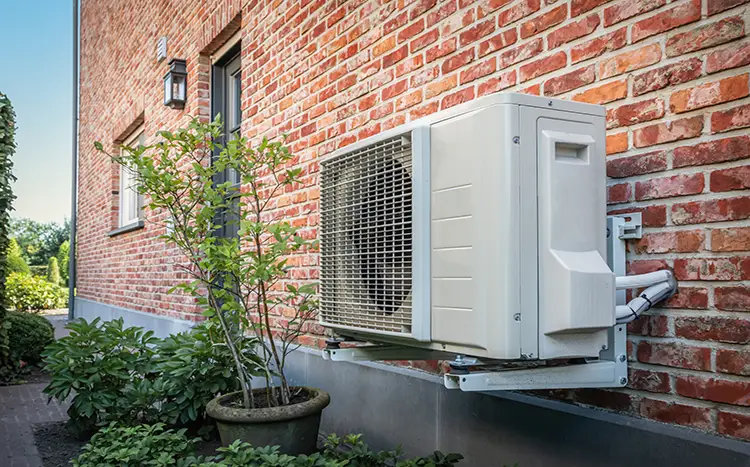Home Warranties Explained
Published on May 2, 2024 | 4 Minute read

Melanie
Ortiz Reyes
Content Specialist
Purchasing a home is one of the most significant investments individuals and families make in their lifetime. Alongside the excitement of homeownership comes the responsibility of maintaining and protecting the property and its systems. Home warranty programs offer homeowners peace of mind by providing coverage for unexpected repairs and replacements of essential home systems and appliances.
What is a Home Warranty Program?
A home warranty is a service contract designed to cover the repair or replacement costs of major home systems and appliances due to normal wear and tear. Unlike homeowners insurance, which primarily covers damages from perils such as fire, theft, or natural disasters, a home warranty focuses on mechanical failures or breakdowns of covered items.

Benefits of Home Warranty Programs
1. Financial Protection: Homeowners can avoid unexpected expenses for costly repairs or replacements of systems and appliances, as these are typically covered under the warranty.
2. Convenience: Home warranty companies arrange and coordinate service calls with qualified contractors or technicians, saving homeowners time and effort in finding reliable repair services.
3. Peace of Mind: Knowing that essential home systems like HVAC, plumbing, electrical, and major appliances are covered can reduce stress and uncertainty for homeowners, especially during emergencies.
Coverage Details of Home Warranty Programs
Coverage under a home warranty can vary depending on the provider and plan selected. However, most standard home warranty plans typically cover the following:
1. HVAC Systems: Heating, ventilation, and air conditioning systems, including furnaces, air conditioners, heat pumps, and ductwork.
2. Plumbing Systems: Water heaters, plumbing lines, faucets, toilets, and drainage systems within the home.
3. Electrical Systems: Wiring, main electrical panels, outlets, switches, and components of the electrical distribution system.
4. Kitchen Appliances: Refrigerators, ovens, ranges, cooktops, dishwashers, built-in microwaves, and garbage disposals.
5. Laundry Appliances: Washers and dryers, including components such as motors, drums, belts, and pumps.

Considerations When Choosing a Home Warranty Program
1. Coverage Limits and Exclusions: Review the specific items covered, coverage limits per item or service call, and any exclusions or limitations in the contract.
2. Service Fees and Deductibles: Understand the service call fees or deductibles associated with each repair or replacement visit.
3. Contract Length and Renewal Terms: Consider the length of the warranty contract, renewal options, and any price increases upon renewal.
4. Claims Process and Service Providers: Research the claims process, response times, availability of service providers in your area, and customer reviews or ratings for the warranty company.
5. Additional Coverage Options: Some home warranty companies offer optional coverage for pool/spa equipment, septic systems, well pumps, and other specialized items for an additional fee.
Tips for Maximizing Home Warranty Benefits
1. Understand Your Coverage: Familiarize yourself with the covered items, exclusions, and limitations outlined in your home warranty contract to avoid misunderstandings during claims.
2. Perform Regular Maintenance: Keep systems and appliances well-maintained through regular cleaning, servicing, and inspections to prevent avoidable breakdowns.
3. Document Repairs and Maintenance: Keep records of repairs, maintenance activities, and service calls, including dates, invoices, and contractor information, as documentation may be required for claims.
4. Report Issues Promptly: Notify the home warranty company as soon as you notice a covered issue to initiate the claims process promptly and minimize potential damages.
5. Communicate Clearly: Provide accurate information about the problem to service technicians or contractors to ensure efficient and effective repairs or replacements.

Common Misconceptions About Home Warranty Programs
1. Confusion with Homeowners Insurance: Home warranties are not the same as homeowners insurance and serve different purposes. While insurance covers damages from perils, warranties cover mechanical failures of covered items.
2. Coverage for Pre-Existing Conditions: Home warranties typically do not cover pre-existing conditions or items already known to be malfunctioning before purchasing the warranty.
3. Unlimited Coverage: Most home warranty plans have coverage limits, service call fees, and exclusions, so it's important to understand the terms and limitations of your specific plan.
Home warranty programs provide valuable protection and peace of mind for homeowners facing unexpected repairs or replacements of essential home systems and appliances. By understanding coverage details and choosing reputable providers, homeowners can maximize the benefits of their home warranty plans. When considering a home warranty, remember to research multiple providers, compare coverage options and costs, and select a plan that aligns with your home's needs and your budgetary considerations.